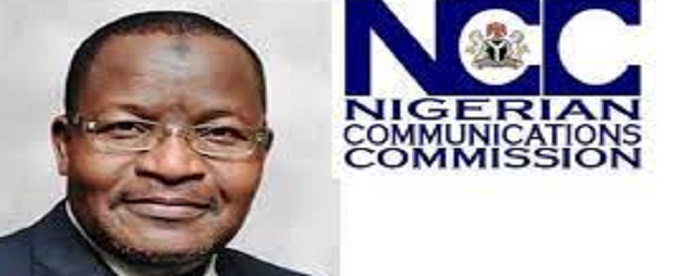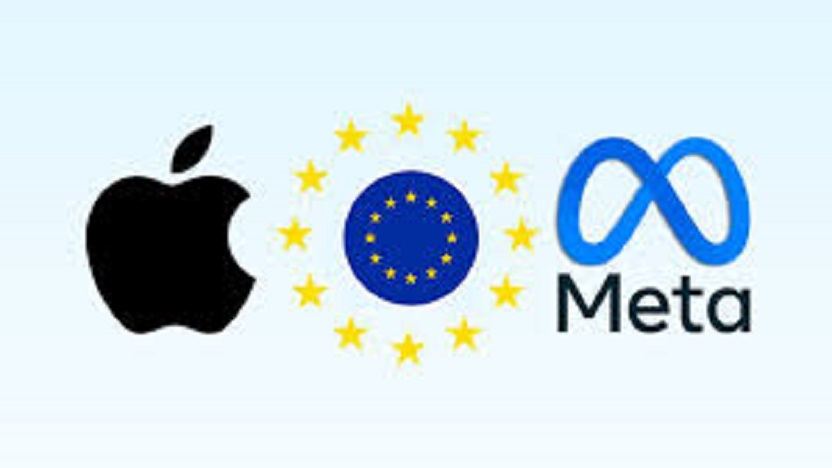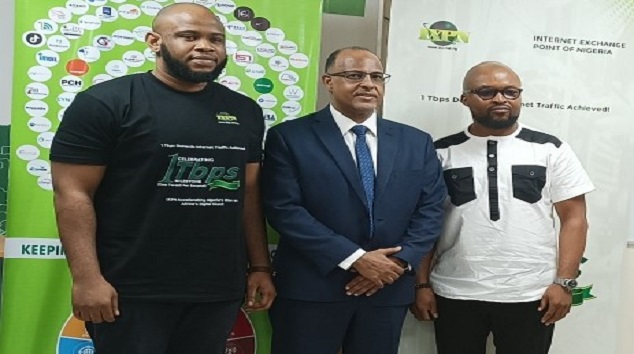Telecom
Nigerians Made 34m Emergency Calls in 8 Months- NCC

Umar Danbatta, executive vice chairman of the Nigerian Communications Commission (NCC), has said that Nigerians made about 34 million emergency calls between January and August 2021.

Danbatta disclosed this on Thursday in Abuja at the 17th All Nigeria Editors’ Conference with the theme, ‘Media in Times of Crisis: Resolving Conflict, Achieving Consensus.’
He said the calls via emergency number 112 were processed through the commission’s emergency call centres (ECC).
The ECC project is the brainchild of the NCC to enable easy communication by Nigerians with emergency first responders such as police, fire service, Federal Road Safety Corps (FRSC), ambulance, among others, by dialling the three-digit toll-free number 112.
The NCC boss said the commission had established functional ECCs in 23 states and the federal capital territory (FCT).
According to him, the centres have been transforming lives and helping many citizens in handling emergencies through instant dispatch of emergency calls received to response agencies.
“In addition to the 23 already established and functioning ECCs, the commission will soon activate ECCs in nine more states, with an auspicious projection to inaugurate similar projects in the remaining four states by ending of 2022, thereby having an ECC per state and in the FCT, in line with the federal government’s directive,” he said.
Danbatta recalled that in the wake of the COVID-19 pandemic in Nigeria, over 1,500 calls bordering on coronavirus-related issues were received and processed by the ECCs.
He explained that the centres provided a platform for the public to seek life-saving information and support on COVID-19 related cases by dialling “112” from any network.
“More remarkably, Nigerians have become more aware of and are using the 122 emergency number,” he added.
“Between January and August 2021, about 34 million calls were made by Nigerians, who were seeking succour during emergencies or under any circumstance posing security issue and unrest within their communities.”
Telecom
MTN Nigeria Reschedules Champs Uyo Finale to Honour Late Chairman Pascal Dozie

MTN Nigeria has announced the rescheduling of the MTN Champs Grand Finale to honour the legacy of its founding Chairman, Mr. Pascal Gabriel Dozie, who passed away on April 8, 2025.

The Grand Finale, which was originally scheduled to hold from April 30 to May 3, will now take place from May 6 to 9, 2025, at the Godswill Akpabio International Stadium in Uyo, Akwa Ibom State.
Dozie was a visionary leader whose pioneering role laid the foundation for what MTN has become today. For 18 years, from 2001 to 2019, he served as Chairman, leading with strength and conviction.
As one of Nigeria’s most respected businessmen and a champion of private sector development, he played a vital role in securing the GSM licence that launched MTN’s operations in Nigeria. His legacy continues to shape the company’s values and commitment to nation-building.
In a statement released earlier by the company, MTN Nigeria expressed deep sadness over his passing and extended heartfelt condolences to his family and loved ones.
“His unwavering belief in Nigeria’s potential and his dedication to its development were truly inspiring. His leadership at MTN Nigeria laid the foundation for our success, and his legacy will continue to guide us in the years to come,” said Karl Toriola, Chief Executive Officer, MTN Nigeria.
The MTN Champs initiative, launched in 2023, with the aim of building future olympians for Nigeria. It is MTN Nigeria’s bold commitment to discovering and nurturing the next generation of track and field athletes across the country.
Following regional competitions in cities such as Benin and Lagos, the Grand Finale in Uyo will bring together the most promising young talents from across Nigeria.
The new date allows athletes, fans, and partners alike to honour the memory of Mr. Dozie while continuing the spirit of excellence and youth development that he championed.
As the country and the MTN brand continue to mourn the loss of a trailblazer, MTN Nigeria remains steadfast in its mission to empower the next generation, on and off the track.
Telecom
EU Fines Apple and Meta €700m in Landmark Digital Markets Act Enforcement

European Commission has imposed landmark fines on tech giants Apple and Meta in the first enforcement actions under the Digital Markets Act (DMA), a new regulatory framework designed to enhance consumer choice and ensure fair competition in the digital economy.

Apple was fined €500 million (£428.3 million) for restricting app developers from guiding users to alternative purchasing options outside its App Store, a practice the commission said limited access to more affordable offers and stifled competition.
The commission has ordered Apple to amend its App Store policies by late June to comply with the DMA, warning that failure to do so could result in further daily penalties.
Meta, the parent company of Facebook and Instagram, was fined €200 million (£171.3 million) over its ‘pay or consent’ model, which required European Union users to either pay for an ad-free experience or consent to personalised advertising.
The commission found that this model failed to offer users a genuine choice and violated rules governing data processing and user consent. Meta’s revisions to this model, made in November 2024, are currently under review by the EU.
Both companies have pushed back against the commission’s decisions. Apple announced plans to appeal, stating that the ruling was unjust and detrimental to user privacy and security. “Today’s announcements are yet another example of the European Commission unfairly targeting Apple in a series of decisions that are bad for the privacy and security of our users, bad for products, and force us to give away our technology for free,” the company said.
Meta also criticised the EU’s approach, claiming that it imposes undue burdens on successful American companies while allowing competitors from China and Europe to operate under different standards. Joel Kaplan, Meta’s chief global affairs officer, said, “This isn’t just about a fine; the Commission forcing us to change our business model effectively imposes a multi-billion-dollar tariff on Meta while requiring us to offer an inferior service.”
The fines are part of a broader effort by the EU to clamp down on dominant digital platforms, known as ‘gatekeepers’, and ensure they do not abuse their market positions.
The commission has also concluded an investigation into Apple’s compliance with DMA rules on browsers and default apps, acknowledging changes that have opened up more space for competition.
However, Apple remains under scrutiny for its handling of alternative app marketplaces, which could attract additional penalties.
The enforcement measures may further strain transatlantic relations, with some in the United States, including former President Donald Trump’s administration, criticising the EU’s digital regulations as disproportionately targeting American firms.
Despite the pushback, the European Commission insists that the DMA is enforced impartially to safeguard consumer rights and foster a level playing field in the digital market.
Telecom
Nigeria Hits 1 Terabit Internet Traffic Milestone

IXPN, Nigeria’s leading Internet Exchange Point, is proud to announce a landmark achievement: crossing 1 Terabit per second (1Tbps) in aggregate peak domestic internet traffic for the first time.

This milestone signifies a major leap forward in developing Nigeria’s internet infrastructure and underscores the critical role of local internet infrastructure in driving economic growth, innovation, and connectivity for millions of Nigerians.
“This milestone is more than just a number. It’s a symbol of Nigeria’s digital maturity and our united strides towards becoming a tech-driven nation. By keeping local internet traffic within Nigeria, we reduce costs, improve speeds, and ensure our digital economy thrives with homegrown infrastructure.” said Muhammed Rudman the CEO of IXPN.
“Achieving 1 Tbps is a significant victory for Nigeria’s ICT ecosystem, a breakthrough for domestic internet traffic. It serves as a catalyst, enabling millions of Nigerians to enjoy faster, more affordable, and resilient internet connectivity.”

1 Terabit per second is a game-changer for Africa’s most populous country. To put it in perspective:
- Mega Video Calls: A speed of 1 Tbps can support over 1 million concurrent Zoom calls, allowing students, entrepreneurs, and professionals to connect and drive Nigeria’s digital revolution.
- Streaming Frenzy: With 1 Tbps, more than 200,000 people can stream HD Nollywood films or movies on Netflix simultaneously without any buffering or interruptions.
- Data Superpower: This speed enables the transfer of the entire contents of 50,000 smartphones—including photos, apps, and videos—in just one second.
For Nigeria, hitting this milestone means reducing reliance on international bandwidth, decreasing latency for local services, and strengthening our position as Africa’s digital heartbeat. This milestone is a testament to the power of collaboration, innovation, and the relentless pursuit of a faster, more connected Nigeria.
This accomplishment goes beyond technical advancements; it has significant economic implications. By encouraging local traffic exchange, IXPN reduces dependency on international bandwidth, leading to:
- Significant Cost Savings: By utilizing local data exchange, Nigerian businesses can save millions of dollars annually on international bandwidth fees.
- Enhanced Speed and Connectivity: With reduced latency, users experience smoother streaming, gaming, and real-time services, enhancing their overall online experience.
- Increased Resilience: Strengthening Nigeria’s internet infrastructure protects against global disruptions, ensuring consistent access to vital services such as healthcare and education.
- Improved Efficiency: Optimizes digital services like fintech, edtech, e-commerce, and e-health, propelling innovation and growth in these sectors.
Surveys conducted among IXPN members over the years have shown a growing percentage of local internet traffic in Nigeria. A recent report indicates that some connected members can localize or domesticate up to 70% of their internet traffic through IXPN.
“As more content providers, ISPs, banks, and public institutions localize their traffic through the IXP, end users benefit directly,” added Raphael Iloka (Marketing Manager). “We’re not just routing data — we’re building the foundation for Nigeria’s digital economy.”
The 1 Tbps peak highlights the remarkable impact of collaboration among all stakeholders. This milestone is a significant achievement not only for IXPN, but for the entire ICT ecosystem. IXPN deeply appreciates the vital contributions of all stakeholders involved.
To our Members and Partners: Your trust and participation have been essential to our growth. Together, we have established a hub where networks can interconnect, innovate, and thrive.
To the Government and Regulators: We express our sincere appreciation to the Nigerian Communications Commission (NCC) for all its support over the years and its vision of a digitally inclusive Nigeria.
To our Team: We extend our gratitude to our engineers, network administrators, and all other staff who work tirelessly behind the scenes to push boundaries.
To the Global Community: We are grateful to partner organizations like the Internet Society (ISOC). Your support and advocacy in domestic peering empower us all.
Reaching 1 Tbps is just the beginning. As data demands skyrocket with AI, IoT, 5G, and immersive technologies, IXPN is committed to staying ahead of the curve. Here’s how:
- Scaling Infrastructure: We are investing in advanced hardware and software to support multi-terabit capacities.
- Enhancing Resilience: We are strengthening our network to ensure uptime, security, and adaptability in an ever-changing digital landscape.
- Empowering Underserved Communities: We aim to expand our reach to rural areas, bridging the digital divide, and supporting agritech, edtech, and telehealth.
- Strengthening Africa’s Digital Sovereignty: Partnering with regional IXPs to keep Africa’s data on the continent.

 Telecom2 days ago
Telecom2 days agoNigeria Hits 1 Terabit Internet Traffic Milestone

 General News2 days ago
General News2 days agoFG to Introduce New Tax Credit Scheme to Replace Pioneer Status Incentive

 E-Financial2 days ago
E-Financial2 days agoFCMB Capital Markets Leads ₦11.85bn GLNG Bond for LNG Plant Expansion

 Telecom2 days ago
Telecom2 days agoMTN Nigeria Faces Class Action Lawsuit over Alleged Data Mismanagement

 News2 days ago
News2 days agoIMF Downgrades Nigeria’s Economic Growth Forecast Amid Oil Price Decline

 E-Financial1 day ago
E-Financial1 day agoUnion Bank’s Edu360 Initiative Scores Big for Nigerian Football Development

 News2 days ago
News2 days agoNITDA Fixes Date for Inaugural Meeting of the Startup Consultative Forum

 Telecom2 days ago
Telecom2 days agoMart Networks Unveils Invinsense 6.0: AI-Powered Cybersecurity Revolution in Africa

























